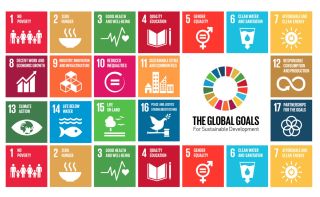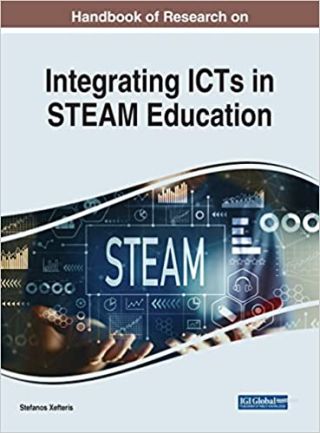Education
Why STEAM Needs Sustainability
Lessons from the Fourth Industrial Revolution.
Posted May 8, 2023 Reviewed by Michelle Quirk
Key points
- Most educators struggle with how to make the connection between STEM educational goals and the multilayered construct of sustainability.
- Educators' response to the use of technology and STEAM seems to be highly correlated with their age.
- Parents tend to push back concerning the use of mobile devices as learning tools but not other technology such as robotics.
When the United Nations (UN) announced the Sustainable Development Goals in 2015, mostly economists and diplomats or country representatives and ambassadors immediately grasped the importance of the goals for future generations. Most educators still struggle with how to make the direct connection between STEM educational goals and the concepts entailed in the multilayered construct of sustainability.
STEM focuses explicitly on science, technology, engineering, and math to introduce innovation in the educational system in mostly the Western countries that are facing postindustrial or post-manufacturing decline, while sustainability suggests that there is more to STEM than just tinkering with recent technology tools, social media, robots, and gadgets. STEM outlines the educational principles for a scientifically literate and technologically advanced society in the 21st century.

Sustainability, on the other hand, suggests the scientific models of the previous centuries, fueling the growth of the industrial age and the spread of globalization—with unlimited horizons for labor and markets—have been falling short for most of the populations around the world. Can these two visions, one of STEAM education and the other of sustainability, meet on common ground, or do they inherently clash?
In this interview, I explore the recent upsurge in the STEM and STEAM educational curriculum—the added emphasis on arts and humanities is critical —and the global emphasis on sustainability as the two faces of the same coin related to the postindustrial decline in the West and the failures of the neo-liberal vision of society, culture, and environment. For science education to fully embrace the challenges of the 21st century, STEAM would have to be integrated with sustainability. Likewise, the business and investor class would have to join with government and nongovernmental sectors to transform our society.
So, as we celebrate Teacher's Appreciation Week in the United States, I reached out to my colleague, Dr. Stefanos Xefteris, at the University of Western Macedonia, Greece, who has recently published a book on this topic, Handbook of Research on Integrating ICTs in STEAM Education.
Dinesh Sharma: What is the situation with STEAM education in Greece?

Stefanos Xefteris: Although there is a robust and highly active STEAM education academic community in Greece, STEAM affordances and pedagogical interventions have been widely spread and acknowledged by a wide audience only in recent years. This trend began slowly with the rise in use of educational robotics as a teaching tool, and, in the span of five years, "STEM" (not so much STEAM to be honest), "robotics," "electronics," and "Arduino" are everyday terms used by both educators and parents.
Robotics and electronics leagues are highly popular and teams from Greece have really done well in the First LEGO League, World Robot Olympiad, and CanSat contests. In short, STEM and STEAM education is right now highly popular in Greece, although not always implemented and integrated successfully in curricula or school clubs.
DS: What are some of the innovative technologies employed by Greek schools today?
SX: Our Ministry of Education and Religious Affairs has made efforts in the past few years to support STEAM education in schools and has implemented initiatives to equip school units with the relevant tools. Although we are "not there" yet and have a long way still, I would say (unfortunately without having official data) that quite a few schools by now have sets of WeDo 2.0 and Mindstorms EV3 / Spike Prime.
At the same time, there is an effort to technologically update classrooms with projectors and smart boards. We should not forget that Greece has undergone a severe financial crisis. I hear news about purchases of VR headsets, 3D printers, etc. The central government right now is constantly trying to provide schools mainly with educational robotics sets and new computers. Sadly, we have a long way to go still and the digital divide is smaller, but there.
DS: Are you getting pushback from educators and parents that technology is being overused in education, especially with younger children?
SX: Having actually published research on this, I would say that pushback is present but also follows a somewhat weird distribution: Let us first separate educators and parents. The educators' response to the use of technology and STEAM seems to be highly correlated to their age. We get much more pushback from educators in their 40s and afterward that come to lifelong learning seminars or master's programs than from our undergrads.
The parents, on the other hand, push back quite unevenly. The same parent who takes his kids to robotics clubs, Arduino workshops, and at home does IoT with them may suggest that mobile devices such as tablets are unsuitable for learning and they induce an unneeded breach in the "sacred" teacher–student continuum. I would say that mostly, though, parents push back concerning the use of mobile devices as learning tools and not other technological affordances such as robotics, electronics, etc. Many parents think that tablets, especially, seriously impede the learning process. So, in essence, "apps don't work; electronics do."
DS: Do you think there is too much screen time in Greece with younger kids?
SX: I will contradict the overall essence of my answers here, but yes. Absolutely. My daughter is almost 4, and she has friends that from the age of 1 would not eat a bite unless watching videos on a screen. She has friends that will not stay still or quiet at a restaurant without watching videos on a screen. Fortunately, we had the background and the luxury of time (she was at the crucial age during the COVID-19 quarantines), so no screens for her. Anyway, older kids are digital natives now, true, but from my point of view, they usually are passive "screenswipers." It is not only a matter of activity or screen time, the content and the context of viewing weigh more severely and have much more negative impact, the way I perceive it. But I am an older guy; it could be a generation-gap thing.
DS: What do you think the Greek philosophers such as Aristotle or Plato would say about the technology revolution today?
SX: Aristotle was essentially a constructionist and constructivist. Virtue was the result of a solid education, and education should be practical. Moreover, he said that games (that I remember clearly) should be used in education. So, there, I think he would be really amazed with the educational technology of today, and the connection between technology and scientific methodology with his Organon would make him really give a high five to himself. I think he would be greatly amazed by advances in medicine and cosmology and especially the technologies involved in these disciplines.
Plato, on the other hand—I think had a more "esoteric" view of knowledge and science believing that education was used to "bring out" innate knowledge from within the individual. I think he would be amazed by our technological ability to visualize abstract ideas and invisible to the naked eye scenes, but I also think he would be still somewhat of a purist and be on the "this is a fad" team for quite a few technological advances.
DS: What do you think about the linkages between STEAM and sustainability with the current technological changes?
SX: Regarding STEAM and sustainability, I think it is a great idea with enormous potential for actual future impact. This specific combination has been around for many years, but in the past 20, has been gaining much more needed and significant momentum. I think the current generation will be much more sensitive to sustainability issues and much more knowledgeable than ours or the previous ones.
The deployment of STEAM-related sustainability courses in all levels of education has met a boom in recent years all around the world, and in Europe. In Greece, the term "environmental education" has been around since the 1960s, with many iterations regarding educational goals and impact bringing us to today's mix of STEAM and sustainability. Back in the 1990s, when I was in junior high, our STEM professors (a biologist, a physicist, and a mathematician) implemented a very interesting program concerning the history of my hometown and its industry. I grew up in Lavrio, Attica, an ancient mining town known for its silver deposits in the era of Pericles and its lead deposits in the Industrial Era. Back then, we learned about actual sustainability measures the ancient Greeks took in order to improve production with minimal environmental impact.




